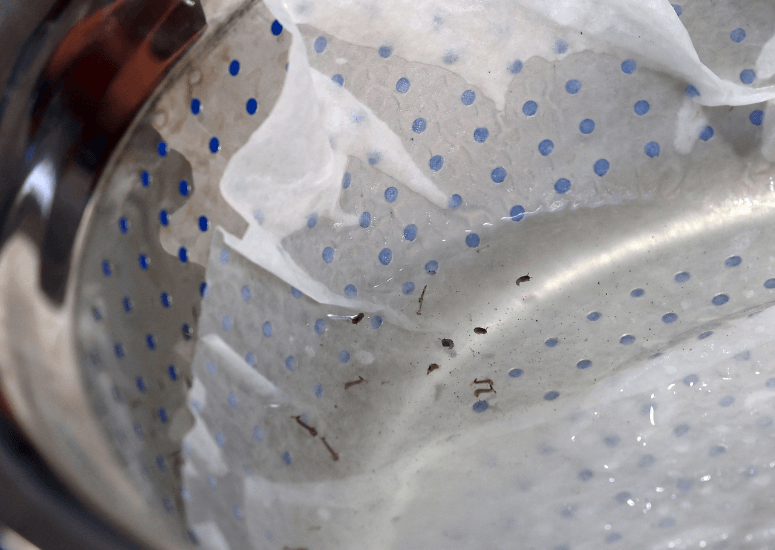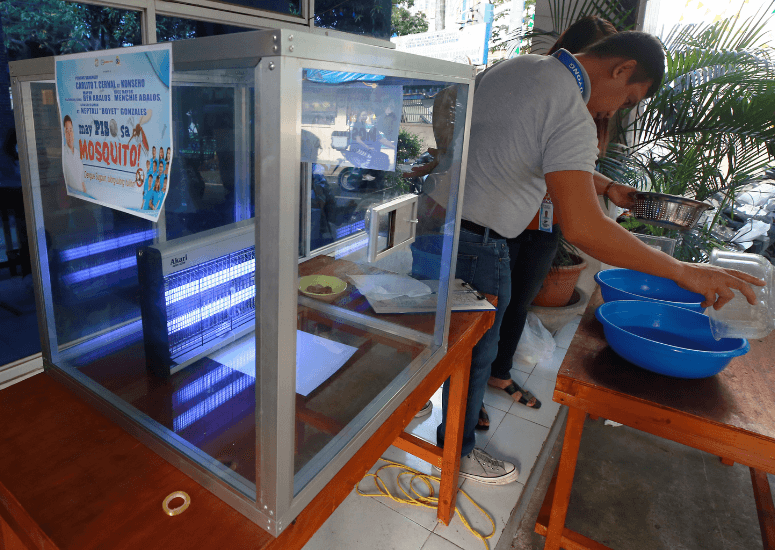PISO per mosquito: How successful has the viral anti-dengue campaign in Mandaluyong been so far?
How has Barangay Addition Hills in Mandaluyong City's “May Piso sa Mosquito” campaign been since it was launched?
The barangay announced the anti-dengue program on Feb. 16, offering to pay residents aged 18 and above one peso for every five or more mosquitoes or larvae—dead or alive—that will be sent to their office from 8:30 a.m. to 5 p.m. starting Feb. 19.
Apart from becoming a hot topic among Internet users and making headlines in the Philippines, the initiative has also caught the attention of international media outlets like The Guardian, BBC, Sky News, Arirang News, and WION (World is One News), among others for its unconventional move to combat dengue.
"Iba't ibang international media, nailathala na ang program ng 'May Piso sa Mosquito' kontra dengue!" barangay chief Carlito Tolibas Cernal wrote in a Facebook post. "Isang simpleng programang pang-barangay (Welfareville Compound) pero hindi ko akalain na ito'y magiging usapin ng buong bansa at sa ibang panig ng mundo."
In a phone interview with PhilSTAR L!fe on Monday, Feb. 23, barangay official Danilo Salvador said they have received a total of 525 larvae and 144 mosquitoes since the program started.
“Karamihan naman ng nagdala sa amin ng mga kiti-kiti ay ‘yung mga empleyado ng health center na nagtatanim ng tinatawag na Ovitrap (mosquito trap) sa mga bahay-bahay, tapos after seven days, inaani nila,” he told L!fe, adding that this helps them identify areas that have the most mosquito larvae.

Alive mosquitoes are killed using a UV (ultraviolet) light in a glass case. The larvae are also placed in a bowl before it gets filled with mosquito larvicide and hot water.
"'Pag bumaba 'yung cases sa barangay namin, ititigil din po 'yung programa ng aming kapitan," he shared.
Anti-dengue campaign
In a Facebook post, barangay captain Carlito Cernal underscored that Addition Hills is one of the populated areas in Mandaluyong, making it a possible area with high risk of dengue.
"Ang Barangay Addition Hills Mandaluyong City na may mataong lugar ang siyang nangunguna na may mataas na kaso ng dengue na [mayroong] 44 pasyente at may mga namatay na kaawa-awang mga batang estudyante dulot ng nakakamatay na dengue," he said on Facebook. "Hinagpis at hinaing ang aking natatangap na mensahe ng bawat pamilyang tinamaan ng dengue lalo na ang may mga namatayan na mahal nila sa buhay."
He said that they decided to start the anti-dengue program as a way to deal with the increasing cases of dengue in their barangay on top of their existing projects like Sabado Linis Day and Oplan Linis Kanal.

While social media users found the initiative amusing, others noted that it might be counterproductive as it could only encourage residents to farm more mosquitoes instead of eradicating it for the sake of the cash reward.
Cernal, however, noted that the program aims to eliminate dengue cases and has no intention of further breeding mosquitoes in the community.
"Ang layunin ay makatulong sa iba pang kasalukuyang programa ng national at pamahalaang lungsod ng Mandaluyong. Ito ay isang alternatibong programa sa paglaban sa lumalang problema sa dengue," he said in a Facebook post. "Hindi po ito biro dahil nakamamatay."
The Philippines has logged 43,732 cases from Jan. 1 to Feb. 15, 56% higher than the 27,995 cases recorded in the same period last year, the Philippine News Agency reported, citing the Department of Health. The regions with the most dengue cases are Calabarzon (9,113), the National Capital Region (7,551), and Central Luzon (7,362).
The health agency said on Friday, Feb. 21 that it has observed a decrease in dengue cases nationwide in the past four weeks. A total of 15,134 dengue cases were logged from Jan. 19 to Feb. 15, which is a 5% decrease compared to the 15,904 cases logged in the same period last year. It also noted that the case fatality ratio (CFR) this year is lower at 0.38%—from 0.42% in the same period last year.
The DOH, for its part, launched the “Alas Kwatro Kontra Mosquito” cleaning drive on Monday, Feb. 24 in several barangays in the country as a way to fight dengue.


